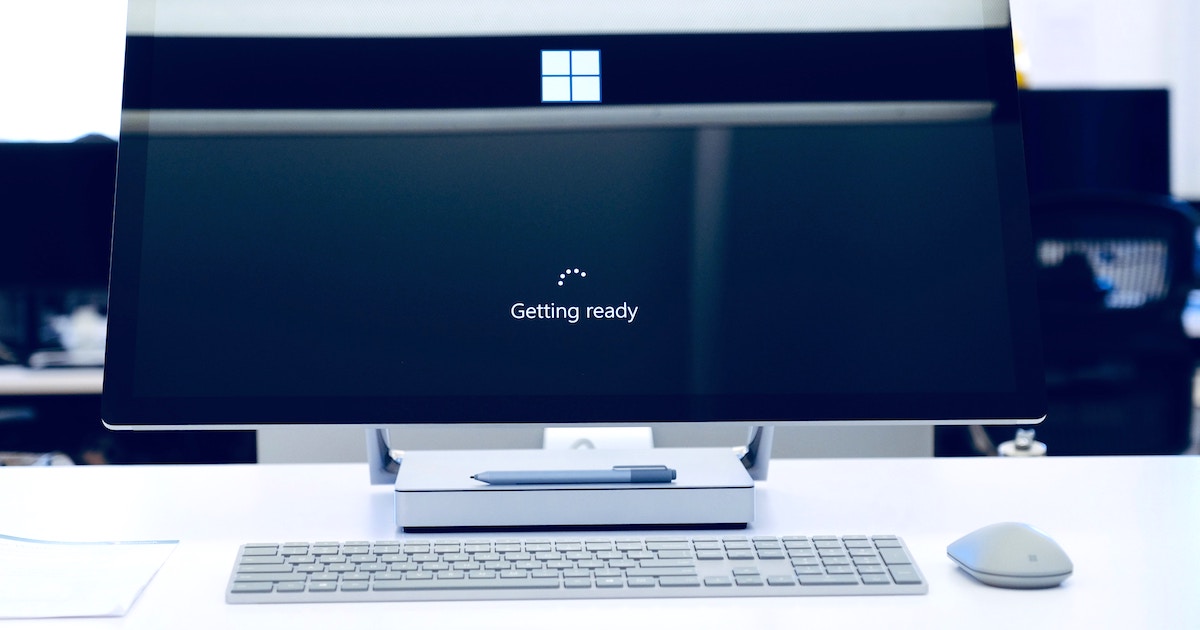
In-Depth Guide to Cyber Security Degrees [2021 Edition]
Hackers don't just drain bank accounts; they also cripple infrastructure [...]

Whether you’re pursuing a bachelor’s degree or a graduate degree, Washington, DC is a fantastic place to study and learn. It’s rich in history and culture; home to monuments, museums, and embassies; and a hub of capitalism, innovation, and entrepreneurship. The nation’s capital is also where business and politics intersect, making it a dream destination for MBA seekers looking to make big things happen.
The federal government may be DC’s largest employer, but public administration is only its second largest industry; in aggregate, professional, scientific, and technical services concerns employ more people. More importantly, DC has one of the highest concentrations of managerial jobs in the country and some of the top-earning managers. Getting an MBA in Washington, DC, interning in the District of Columbia, and then settling here is a pretty solid three-step life plan.
More than 35 colleges and universities in the DC metropolitan area, Virginia, and Maryland offer MBA and other post-bachelor’s degree business programs. In this article, we’re going to concentrate on the best MBA options in the very heart of the capital.
In this article about earning an MBA in Washington, DC, we cover:
| University and Program Name | Learn More |
|
Pepperdine University:
Online Master of Business Administration
|
|
|
Stevens Institute of Technology:
Online Master of Business Administration
|
|
|
Merrimack College:
Master of Science in Leadership
|
|
|
Merrimack College:
Master of Science in Management
|
|
|
The University of Tennessee:
Online Master of Business Administration
|
MBA programs tend to cost more than other graduate degree programs; earning a graduate business degree in Washington, DC, isn’t cheap. The average cost of an MBA in DC is about $80,000, which is slightly above the nationwide average . Even though the cost of living in this area of the US is quite high, you won’t pay much more than is typical for this degree.
Even the highest-ranked MBA programs in Washington, DC, charge only about what you’ll pay for prestigious programs elsewhere—once you get past the especially pricey top-10 programs.
Experiential learning is the focus of the full-time no-GMAT MBA program at American University. The Kogod Office of Career Engagement places students in high-value summer internships; MBA students participate in local, regional, and national case competitions; and intensive live consulting projects with corporate partners worldwide are built into the curriculum. First-year MBA students benefit from the school’s weekly Business Leadership Luncheons that feature presentations by business leaders from the Washington, DC area.
MBA students can opt into any of several dual-degree programs. The Kogod MBA can be paired with any of the following degrees:
The Kogod MBA program is also available online via a mix of live Zoom classes, asynchronous coursework, and immersions in business capitals worldwide. Online MBA students can choose from among six MBA concentrations—business analytics, consulting, cybersecurity, finance, legal studies, and marketing—or create a one-of-a-kind specialization by selecting electives that align with their goals. The distance MBA at American University has been recognized by U.S. News & World Report as one of the nation’s best online MBA programs.
Students enrolled in the GW MBA program can choose from among a variety of delivery formats and focus areas, including the:
GWU is ranked first for international business in the US and fifth worldwide by the Financial Times. All MBA pathways here emphasize global business issues. Students can participate in a short-term study abroad trip for up to six academic credits, take part in international service immersions, and participate in collaborative advocacy initiatives at home and abroad. There are also opportunities to bundle elective courses to earn graduate certificates and several dual-degree options. The George Washington University School of Business partners with other departments to offer an MBA plus a/an:
Ranked #25 on U.S. News & World Report’s list of the best business schools, the McDonough School of Business offers a full-time MBA program, a flex MBA program, and an Executive MBA program. Highlights of the full-time program include the domestic and international residencies, robust career support, notable corporate partnerships, and dual-degree pathways that pair the MBA with a JD, an MS in Foreign Service, an MD, or a Master of Public Policy.
The part-time Flex MBA is the latest variation on the school’s highly regarded evening MBA for working professionals. The program lasts anywhere from 28 months to five years, depending on how quickly a student progresses. The Flex curriculum includes one- and two-week-long Intensive Learning Experience courses. Students can participate in the same student organizations, international treks, and case competitions open to full-time MBA candidates.
The 20-month, no-GMAT EMBA program at Georgetown University is #1 in the U.S. for its career-boosting potential, #1 in the DC area, and 6th in the nation overall, according to the Financial Times. Students experience the program among relationship-building cohorts, a source of academic support before graduation and a source of career support afterward. The approach this program takes is hands-on. Students tackle live case experiences from day one, student consulting teams work together to solve pressing business problems, residency and practicum experiences abound, and the EMBA program culminates in a global capstone project completed with a real-world company.
Howard University is home to the top HBCU MBA program and the first MBA program in Washington, DC, to be accredited by the Association to Advance Collegiate Schools of Business (AACSB). Ranked #70 in the nation by U.S. News & World Report, the School of Business offers a full-time on-campus MBA, an accelerated flex MBA, and an online MBA. Several dual-degree pathways confer the following degree pairings: JD/MBA, MD/MBA, PharmD/MBA, MSW/MBA, MDiv/MBA, and BSE/MBA.
Job placement is one of Howard University School of Business’ strengths, and the school’s partnerships with local and faraway companies put it on the same level as top-20 MBA programs. Large national and international firms regularly recruit on campus. Howard MBA students also have access to abundant social and networking opportunities, monthly leadership development workshops, an executive lecture series, and a strong alumni network.
Those aren’t the only reasons MBA students choose Howard University. The School of Business offers a learning environment that’s unique to HBCUs. Small class sizes make the environment of this MBA program extraordinarily close and supportive. Professors go out of their way to assist students and support their career goals. Howard University also has the lowest tuition of the Washington, DC, business schools profiled in this article and provides a significant amount of financial assistance to its students.
Internship and employment opportunities are plentiful in DC, where an MBA student might land in a government agency, a multinational corporation, or a growing tech startup. There are 16 Fortune 500 companies in the Washington, DC, area where business school students find internships and post-graduation employment. The military and FEMA also employ many DC-minted MBAs, and the Department of Homeland Security even has a Presidential Management Fellowship program for advanced degree holders.
Students at the schools we’ve listed don’t have to navigate the post-graduation landscape on their own. Career prep is woven through the MBA programs at these institutions. Students work with industry coaches and peer advisors, go on career treks, participate in career day events, and work on real-world projects with university partners.
As a result, graduates go on to work at great companies. Booz Allen Hamilton, Deloitte, and Raytheon are three of the biggest employers of American University graduates. Georgetown University students regularly go on to work at companies like Amazon, American Airlines, Bank of America, Citigroup, EY, Goldman Sachs, JP Morgan Chase, KPMG, and Microsoft. DC MBA holders also found their own companies—in fact, Howard University graduates more company founders than any other ranked business school.
The reason MBAs cost so much is that you get what you pay for. Return on investment is the metric most people use to determine how much they’re willing to spend on a Master of Business Administration. When it comes to the post-graduation salaries associated with MBA programs in Washington, DC, the ROI is pretty good. The average DC salary across industries and degrees is about $76,000, but MBA salaries in Washington, DC tend to be a lot higher than that.
Graduates from the above schools may earn even more. The average starting salary of Howard University MBAs is about $91,000. Georgetown graduates typically earn about $117,000 after graduation. McDonough School of Business graduates earn starting salaries of about $124,000.
Pursuing an MBA in Washington, DC, makes good financial sense considering that these programs aren’t among the most expensive graduate business programs. Money isn’t everything, however. While DC MBA programs do a lot to help students build strong networks and land lucrative jobs in the industries that interest them most after graduation, their appeal can’t always be measured in dollars and cents. If you’re passionate about government operations, a huge history fan, or a patriot through and through, you’ll love studying here at the crossroads of business and politics.
(Updated on February 21, 2024)
Questions or feedback? Email editor@noodle.com

Hackers don't just drain bank accounts; they also cripple infrastructure [...]

Microsofties are paid especially well, with principal software development engineers [...]

Financial analysis is a relatively rare specialization for MBAs, but [...]
Categorized as: Business Administration, Business & Management